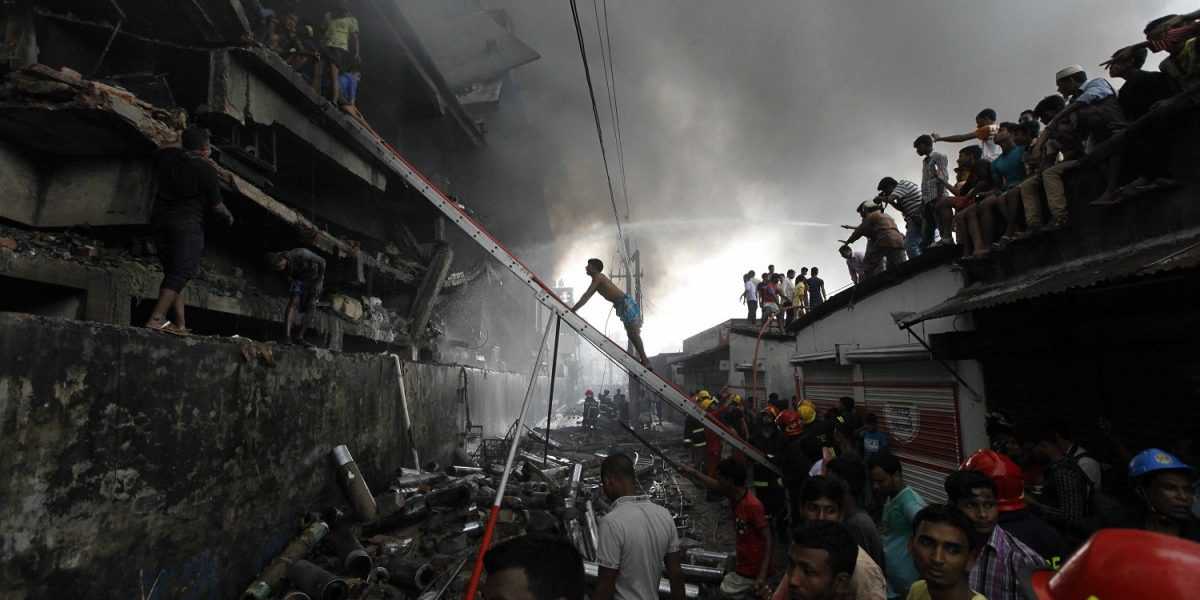Unchecked Boiler Rooms Are Making Bangladesh’s Industries a Dangerous Workplace

Dhaka: Bangladesh is shifting from an agrarian economy to an industrial one, with an average annual industrial growth rate of 6.8% (as per the CIA World Factbook) over the past decade. While this steady progress has garnered praise and bagged export deals for its economy, one problem steals its glory: boiler rooms.
In the last four years, a total of 62 persons have died in 12 separate incidents of boiler explosions in Bangladesh. On September 10, 2016, 24 people died in a single explosion at Tampaco Foils Ltd, a packaging factory in Tongi at the outskirts of the capital Dhaka. On July 3 last year, 13 people died after a boiler exploded at Multifabs Ltd, a textile factory in Gazipur district.
Also Read: Five Years After Deadly Factory Fire, Bangladesh’s Garment Workers Still Vulnerable
Considered as the heart of an industrial set up, these boilers run on natural gas and need periodic inspections to ensure safety standards. But for a total of 5,039 active boilers across the country, Bangladesh has just eight government appointed inspectors!
These inspectors are tasked with several duties: approving new boilers and skilled boiler operators (to being one, training is needed, after which candidates must pass an exam conducted by the same inspectors), renewing old boilers by issuing fitness certificates and paper work to comply with the bureaucracy.
For issuing fitness certificates, the inspectors need to visit industrial units scattered across the country, individually. The field visits are made by the inspectors. The chief inspector and deputy chief inspectors usually don’t go to the field but have to oversee them and go through the paper works prepared after a filed visit.
But for a total of 5,039 active boilers across the country, Bangladesh has just eight government appointed inspectors!
“In the last 48 hours, I needed to inspect and issue fitness certificates to 14 boilers,” said Hanif Hossain, an inspector with the office of the chief inspector of boilers under the industries ministry of Bangladesh. “And all of them are in Barishal (a coastal town some 290 kilometers away from the capital),” said Hossain.
To inspect a single boiler properly, three to four hours are needed, Hossain said. Before that, the boiler needs to be closed down for at least 32-48 hours, depending on the type, size and age.
“There was immense pressure from the factories who all want their boilers to be inspected,” said Hossain, “So I had to put in long hours.” Despite that, he said he was only able to inspect four-five boilers thoroughly. For the rest, mostly new boilers, he didn’t bother to go through the lengthy and tiresome process of hydraulic testing. He just went through their logbooks.
“I came back from Barishal at 1 am yesterday and now I am in the office by 9 pm,” Hossain said, while we met in his office. “I have to finish the paper work of all the boilers I checked,” he said pointing towards a pile of files on his table.
Source: https://thewire.in
Tags :
Previous Story
- Bangladesh Boiler Rooms: On The Mundane Perils Of...
- Bangladesh prepares for World Skills Competition 2019
- Huawei keen to support Bangladesh's ICT sector
- Bangladesh Showcases Rising Talent in ‘Sincerely Yours, Dhaka’
- Reporters Diary: Bangladesh, my childhood home, has come...
- Bangladesh seeks revival of silk industry
- BIDA chief asks private sector to take lead...
- US auto sales fell by 4 percent in...